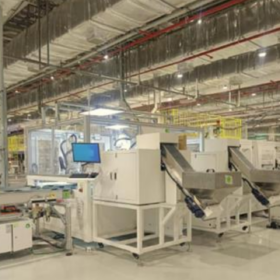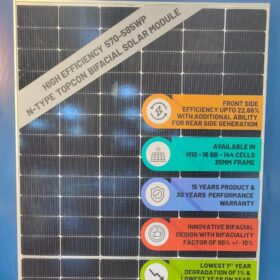Having received representations from many companies that entered into module supply agreements with China’s CSUN Trading (Hong Kong) or CEEG (Shanghai) Solar Science Technology for procurement of solar PV modules manufactured by the latter, the Ministry of New and Renewable Energy (MNRE) has notified that these companies are part of the same group, which breached the contract by not supplying the modules in accordance with the terms of the Agreement and even did not return the advance paid to them.
In one case, the matter has also been settled in favour of an Indian company by way of Singapore International Arbitration Centre, but the award of the arbitration has not been honoured by CEEG (Shanghai) Solar Science Technology, China.
As the Government of India has kept a target of installing 100 GW of solar capacity by 2022, the ministry said, such breach of valid contracts and not supplying modules on time by foreign companies cannot be tolerated.
Therefore, “the ministry took up these issues with the Ministry of External Affairs to impress upon the Chinese authorities to advise CSUN Trading (Hong Kong), China (CSUN) or CEEG (Shanghai) Solar Science Technology, China, to meet the contractual obligations to the Indian companies and also to honour the arbitration award.”
The Consulate General of India in Shanghai, Ministry of External Affairs, has informed that the above-mentioned Chinese companies—CSUN and CEEG—are high-risk companies that have over 160 court cases against them—mostly for breach of contract with millions of RMB (Ren Min Bi, currency of China) in compensation amount.
Accordingly, MNRE has advised all concerned, including Solar Energy Corporation of India (SECI), NTPC, solar power developers’ associations, states and banks/lending institutions, to deal with CSUN and CEEG at their own risk.
To prevent such incidences, all concerned stakeholders have also been advised to contact Indian Embassy in China and/or the Consulate General of India, Shanghai, to verify standing and reputation of various Chinese companies before placing any orders.
The MNRE has also requested the Ministry of Finance to take appropriate action by informing all banks/lending institutions, so as to avoid any possible NPAs/regulatory issues in future.
pv magazine had earlier reported that the MNRE is planning a ban on CSUN following complaints from Indian solar project developers Acme Solar, RattanIndia and Refex Energy about CSUN failing to honour PV module supply contracts with them.
Acme Solar had signed a PV module supply deal with CSUN for an aggregate capacity of 30 MW. The former paid an advance of $2.95 million, which was about 30% of the purchase price or equal to the cost of 9MW of equipment. CSUN failed to dispatch 9W of modules by the agreed deadline, and did not return the advance either, Economic Times reported from Acme Solar’s petition at the International Arbitration Centre.
CSUN also defaulted on 40 MW module supply order placed by Refex, and did not return the advance ($1.12 million) paid either, it said.
This content is protected by copyright and may not be reused. If you want to cooperate with us and would like to reuse some of our content, please contact: editors@pv-magazine.com.









By submitting this form you agree to pv magazine using your data for the purposes of publishing your comment.
Your personal data will only be disclosed or otherwise transmitted to third parties for the purposes of spam filtering or if this is necessary for technical maintenance of the website. Any other transfer to third parties will not take place unless this is justified on the basis of applicable data protection regulations or if pv magazine is legally obliged to do so.
You may revoke this consent at any time with effect for the future, in which case your personal data will be deleted immediately. Otherwise, your data will be deleted if pv magazine has processed your request or the purpose of data storage is fulfilled.
Further information on data privacy can be found in our Data Protection Policy.